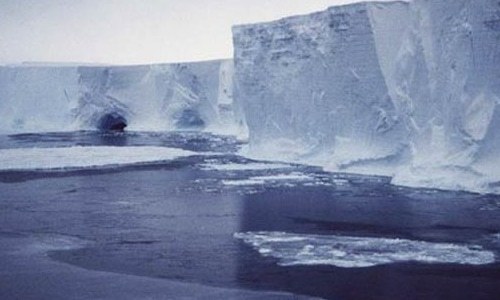WELLINGTON: Polynesian seafarers likely reached Antarctica hundreds of years before the Western explorers usually credited with discovering the frozen continent, a new study has concluded.
New Zealand researchers scoured so-called “grey literature” — including oral records, historic indigenous artworks and non-academic sources — looking for links between Maori people and Antarctica.
“When you put it together, it’s really clear, there’s a very long history of connection to Antarctica,” said project leader Priscilla Wehi from New Zealand’s government research institute Manaaki Whenua.
“We found connection to Antarctica and its waters (has) been occurring since the earliest traditional voyaging, and later through participation in European-led voyaging and exploration, contemporary scientific research, fishing, and more, for centuries.” Polynesian seafarers are widely regarded as some of history’s greatest sailors, navigating vast distances between Pacific islands with pin-point precision on their double-hulled waka, or canoes.
The research, published last week in the Journal of the Royal Society of New Zealand, found they reached Antarctica long before the first Westerners in the 1820s.
The researchers believe the first voyage to Antarctica waters even pre-dates Maori arrival in New Zealand in the 14th century.
“We find Polynesian narratives of voyaging between the islands include voyaging into Antarctic waters by Hui Te Rangiora and his crew on the vessel Te Ivi O Atea, likely in the early seventh century,” Wehi said.
“These navigational accomplishments are widely acknowledged.” Oral histories of the voyage include reference to “a foggy, misty and dark place not seen by the sun” and iceberg-like summits “piercing the sky with no vegetation”.
The study said that Maori carving and weaving also supported accounts of early Antarctic exploration.
Wehi said collating traditional Maori accounts helped give a broader view of Antarctic history, beyond the accounts of European male explorers that usually predominate.
“History tends to be told by one voice and there’s often a dominant narrative,” she told the New Zealand Herald.
“Often indigenous history and even women’s history becomes invisible, so for me it’s about making that history visible.”
Published in Dawn, June 15th, 2021













































